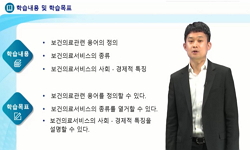본 연구의 목적은 온라인 트래킹에 대한 소비자들의 인식, 행태, 의견을 탐색하고 이를 바탕으로 온라인 트래킹으로부터 소비자를 보호할 수 있는 정책적 시사점을 도출하는 것이다. 일반 ...
http://chineseinput.net/에서 pinyin(병음)방식으로 중국어를 변환할 수 있습니다.
변환된 중국어를 복사하여 사용하시면 됩니다.
- 中文 을 입력하시려면 zhongwen을 입력하시고 space를누르시면됩니다.
- 北京 을 입력하시려면 beijing을 입력하시고 space를 누르시면 됩니다.

온라인 트래킹에 대한 소비자 인식과 정책적 시사점 = Consumer Perception and Response to Online Tracking and Policy Implications for Privacy Protection
한글로보기https://www.riss.kr/link?id=A105353992
- 저자
- 발행기관
- 학술지명
- 권호사항
-
발행연도
2018
-
작성언어
Korean
-
주제어
온라인 트래킹 ; 프라이버시 ; 개인정보 ; 소비자보호 ; 소비자정책 ; online tracking ; privacy ; personal information ; consumer protection ; consumer policy
-
등재정보
KCI등재
-
자료형태
학술저널
-
수록면
171-198(28쪽)
-
KCI 피인용횟수
2
- DOI식별코드
- 제공처
-
0
상세조회 -
0
다운로드
부가정보
국문 초록 (Abstract)
본 연구의 목적은 온라인 트래킹에 대한 소비자들의 인식, 행태, 의견을 탐색하고 이를 바탕으로 온라인 트래킹으로부터 소비자를 보호할 수 있는 정책적 시사점을 도출하는 것이다. 일반 소비자 20명을 대상으로 표적집단면접을 실시하여 온라인 트래킹에 대한 반응을 정성적으로 탐색하고 설문지를 개발하였으며, 온라인 설문조사를 통해 수집된 총 645명의 응답 자료를 분석하여 그 결과를 양적으로 검증하였다.
본 연구의 주요 결과는 다음과 같다. 첫째, 소비자들은 다양한 맞춤형 광고나 서비스를 통해 온라인 트래킹을 경험하고 있었으나 온라인 트래킹의 목적, 방법 등 구체적 내용에 대해서는 피상적으로만 이해하고 있었다. 둘째, 소비자들은 정보유용성, 편의성, 유희성을 온라인 트래킹의 효용으로 인식하였으며, 프라이버시 위험, 통제권 제한, 불완전 기능을 비용으로 인식하였다. 대체적으로 효용보다 비용을 높게 지각하는 것으로 나타났다. 셋째, 온라인 트래킹에 대한 소비자의 태도와 수용의도는 낮은 편이었으며, 트래킹 차단 프로그램을 설치하거나 쿠키를 삭제하는 등 적극적인 방법으로 온라인 트래킹을 차단하려는 의향이 높은 것으로 나타났다. 넷째, 소비자들은 온라인 트래킹으로부터 소비자를 보호해야 할 책임이 사업자에게 가장 크다고 여겼으며, 정부, 소비자 개인, 소비자단체 및 학계, 언론 등 다양한 이해관계자들이 안전한 온라인 트래킹 환경 조성을 위하여 노력해야 한다고 인식하였다. 다섯째, 소비자들은 보다 강력한 온라인 트래킹 규제정책을 요구하고 있으나 동시에 이를 신경 쓰고 싶어 하지 않는 양가적 반응을 보였다. 이러한 결과는 정보주체인 소비자들의 무력감을 극복하고 선택권과 통제권을 강화할 수 있는 실효적 방안 모색이 요구됨을 시사한다. 또한 온라인 트래킹으로부터 소비자를 보호하기 위한 법과 정책이 소비자 권익을 보호하는 동시에 산업의 혁신을 저해하지 않는 적절한 조화점에 대한 고민이 요구된다.
본 연구는 안전하고 신뢰할 수 있는 온라인 트래킹 환경 마련을 위한 기초자료 및 논의의 단초를 제공했다는 점에서 학문적, 정책적 의의를 갖는다.
다국어 초록 (Multilingual Abstract)
Online tracking, which refers to practices that collect, store, and utilize behavioral information about consumers online, is essential to develop personalized and customized services. Rapid advances in tracking technology may provide considerable con...
Online tracking, which refers to practices that collect, store, and utilize behavioral information about consumers online, is essential to develop personalized and customized services. Rapid advances in tracking technology may provide considerable convenience and benefits to the consumer. However, consumers’ privacy concerns and actual security risks may have increased since it has become increasingly difficult to know how information about individuals is traded, aggregated, and utilized. Therefore, protecting consumer privacy is a subject that should be studied and discussed more deeply in the changing market environment.
This study aims to analyze the perceptions and response to online tracking of Koreans, to draw up policy implications to protect consumers from online tracking, and to provide a basis for a cooperative dialogue between the government, corporations, and consumers so consumer privacy can be adequately protected. For this purpose, focus group interviews were conducted with 20 participants on June 2-3, 2017. Online surveys were also conducted to verify the validity and objectivity of the results of the qualitative research. A total of 645 completed responses were collected from June 30 to July 4, 2017.
The major results and implications of this study are summarized as follows. First, consumers were not clearly aware of what information about themselves is being tracked and used by whom, where, and for what purpose. To develop and expand online tracking, consumer information must be utilized. Therefore, it is required to improve the perception and understanding of consumers about the concept, mechanism, and influence of online tracking.
Second, consumers are emotionally and behaviorally negative about online tracking and intend to actively block online tracking by using ad-block software or by deleting cookies. This result suggests that it is necessary to reduce the perceived risk and anxiety of consumers about online tracking through efforts such as protecting consumer privacy and ensuring the right to control their personal information.
Third, consumers regarded the right of choice and control as the basic principle of personal information in online tracking and as very important. However, they recognized that these rights were not really guaranteed and would be formal, even if guaranteed. Therefore, it is necessary to find an effective way to overcome consumers’ powerlessness about privacy protection and to strengthen their rights to control what and how information is used. In addition, considering the privacy paradox, it is necessary to discuss how to reflect consumers' preferences without demanding too much effort from them.
Fourth, when setting up online tracking, consumers prefer to configure privacy preferences in the browser rather than going to individual sites, to opt-in rather than opt-out, legal and policy regulation rather than self-regulation, and pre-regulation rather than post-regulation. The policy for consumer protection from online tracking should not be too loose to infringe the interests of consumers, but it should not hinder the innovation of the industry by becoming a new entry barriers. Therefore, it is necessary to consider proper harmony between consumer protection and industrial innovation in preparing online tracking policy.
참고문헌 (Reference)
1 유호근, "웹사이트의 쿠키 수집 및 3자 제공 현황분석과 개선방안" 충북대학교 2016
2 방송통신위원회, "온라인맞춤형광고 개인정보보호가이드라인"
3 "손전등앱 개인정보 유출, ‘유출정보’ 해외마케팅 회사로…손전등앱 개인정보 유출, 정보 어디로 갔나 보니?"
4 한국온라인광고협회, "빅데이터를 활용한 온라인광고 생태계 발전방안에 관한 토론회 기록집"
5 이문지, "미국 연방거래위원회법 제5조에 의한 소비자 개인정보 보호- 자율규제에 의한 소비자 개인정보 보호의 안전장치 -" 한국경영법률학회 27 (27): 443-476, 2016
6 이진명, "개인정보 활용에 대한 양면가치태도와 내적갈등이 소비자의 모바일쇼핑 만족에 미치는 영향: 신뢰의 조절효과를 중심으로" 한국소비자학회 27 (27): 147-170, 2016
7 "eMarketer"
8 Network Advertising Initiative, "Use of noncookie technologies for internet-based advertising" 2017
9 Meng, W., "Trackmeornot: Enabling flexible control on web tracking" 99-109, 2016
10 "Threatmetrix"
1 유호근, "웹사이트의 쿠키 수집 및 3자 제공 현황분석과 개선방안" 충북대학교 2016
2 방송통신위원회, "온라인맞춤형광고 개인정보보호가이드라인"
3 "손전등앱 개인정보 유출, ‘유출정보’ 해외마케팅 회사로…손전등앱 개인정보 유출, 정보 어디로 갔나 보니?"
4 한국온라인광고협회, "빅데이터를 활용한 온라인광고 생태계 발전방안에 관한 토론회 기록집"
5 이문지, "미국 연방거래위원회법 제5조에 의한 소비자 개인정보 보호- 자율규제에 의한 소비자 개인정보 보호의 안전장치 -" 한국경영법률학회 27 (27): 443-476, 2016
6 이진명, "개인정보 활용에 대한 양면가치태도와 내적갈등이 소비자의 모바일쇼핑 만족에 미치는 영향: 신뢰의 조절효과를 중심으로" 한국소비자학회 27 (27): 147-170, 2016
7 "eMarketer"
8 Network Advertising Initiative, "Use of noncookie technologies for internet-based advertising" 2017
9 Meng, W., "Trackmeornot: Enabling flexible control on web tracking" 99-109, 2016
10 "Threatmetrix"
11 Pariser, E., "The filter bubble: What the Internet is hiding from you" Penguin books 2011
12 Zolfagharian, M., "The dark side of consumer life in the age of virtual and mobile technology" 33 (33): 1304-1335, 2017
13 Castelluccia, C., "Privacy considerations of online behavioural tracking" ENISA 2012
14 Lee, J. M., "Personalization–privacy paradox and consumer conflict with the use of location-based mobile commerce" 63 : 453-462, 2016
15 Powale, P. I., "Overview of privacy in social networking sites(sns)" 74 (74): 39-46, 2013
16 Englehardt, S., "Online tracking: A 1-million-site measurement and analysis" 1388-1401, 2016
17 "Marketing charts"
18 European Union, "General Data Protection Regulation"
19 Williams, B., "Exploratory factor analysis : A five-step guide for novices" 8 (8): 1-13, 2010
20 Federal Trade Commission, "Cross-Device Tracking: An FTC Staff Report" 2017
21 Sar, R. K., "Contextual integrity’s decision heuristic and the tracking by social network sites" 16 (16): 15-26, 2014
22 Duong, V. X., "A Proposal of a Cross-Browser User Tracking Method with Browser Fingerprint" Keio University 2011
동일학술지(권/호) 다른 논문
-
소비 목표와 자아 해석이 구색 크기 선호에 미치는 효과
- 한국소비자학회
- 박세훈 ( Park Sehoon )
- 2018
- KCI등재
-
배경음악의 템포와 호감도가 선한 음식과 악한 음식의 소비에 미치는 효과
- 한국소비자학회
- 박세훈 ( Park Sehoon )
- 2018
- KCI등재
-
- 한국소비자학회
- 장금혜 ( Zhang Jinhui )
- 2018
- KCI등재
-
- 한국소비자학회
- 박희주 ( Park Heejoo )
- 2018
- KCI등재
분석정보
인용정보 인용지수 설명보기
학술지 이력
| 연월일 | 이력구분 | 이력상세 | 등재구분 |
|---|---|---|---|
| 2026 | 평가예정 | 재인증평가 신청대상 (재인증) | |
| 2020-01-01 | 평가 | 등재학술지 유지 (재인증) |  |
| 2017-01-01 | 평가 | 등재학술지 유지 (계속평가) |  |
| 2013-01-01 | 평가 | 등재학술지 유지 (등재유지) |  |
| 2010-01-01 | 평가 | 등재학술지 유지 (등재유지) |  |
| 2008-01-01 | 평가 | 등재학술지 유지 (등재유지) |  |
| 2006-01-01 | 평가 | 등재학술지 유지 (등재유지) |  |
| 2004-01-01 | 평가 | 등재학술지 유지 (등재유지) |  |
| 2001-07-01 | 평가 | 등재학술지 선정 (등재후보2차) |  |
| 1999-01-01 | 평가 | 등재후보학술지 선정 (신규평가) |  |
학술지 인용정보
| 기준연도 | WOS-KCI 통합IF(2년) | KCIF(2년) | KCIF(3년) |
|---|---|---|---|
| 2016 | 1.48 | 1.48 | 1.67 |
| KCIF(4년) | KCIF(5년) | 중심성지수(3년) | 즉시성지수 |
| 1.7 | 1.88 | 2.351 | 0.15 |





 KCI
KCI KISS
KISS






